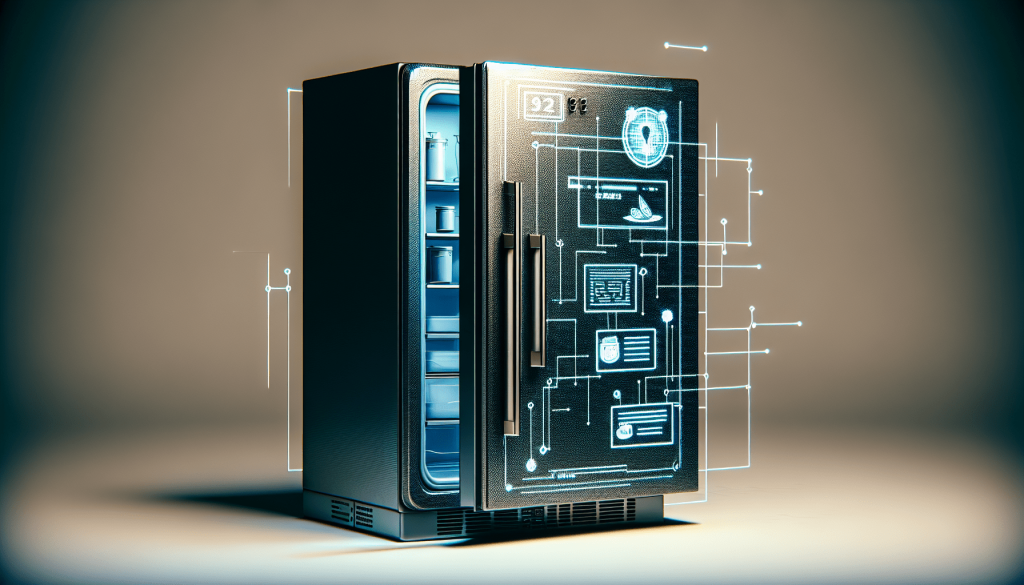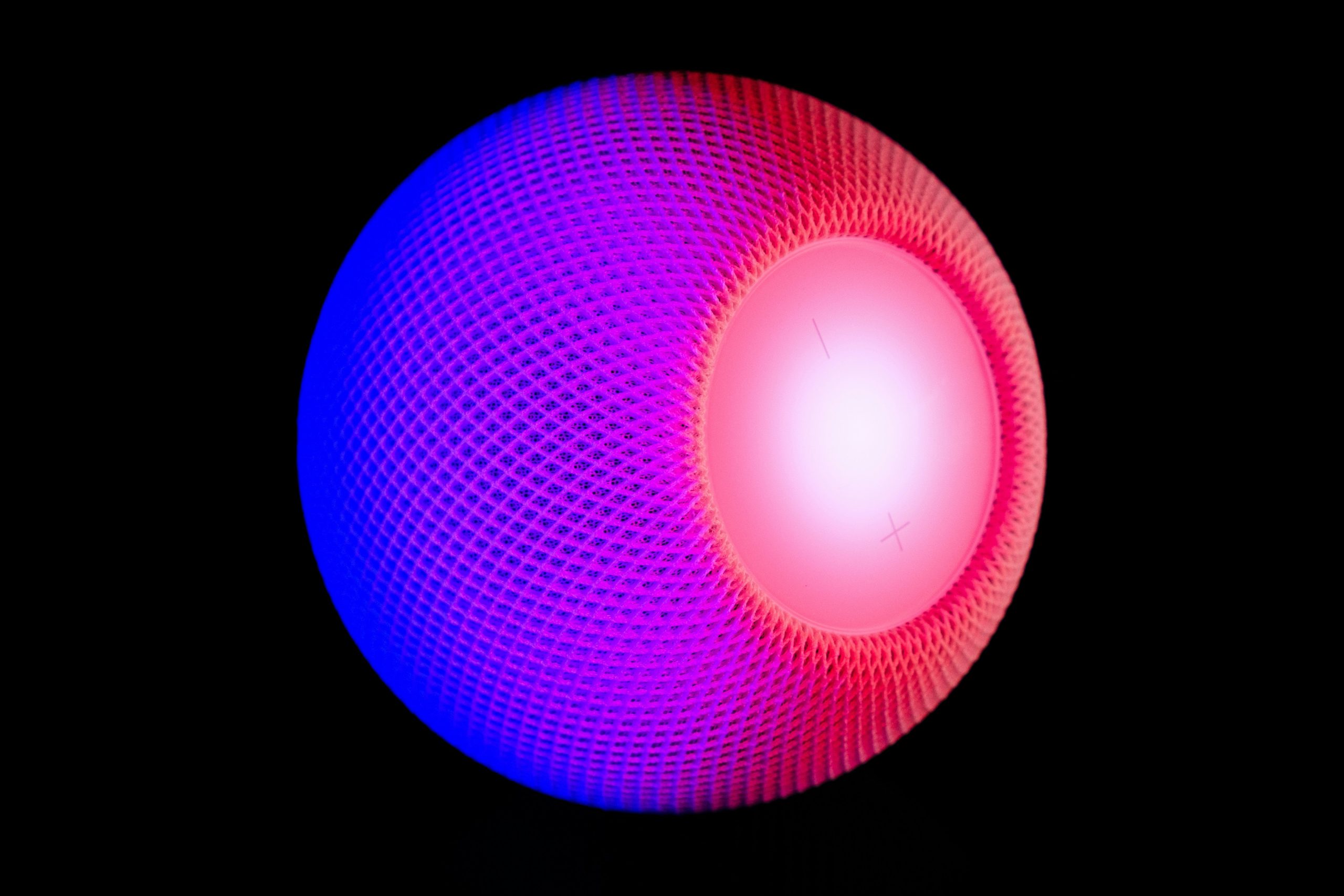In today’s technologically advanced world, smart refrigerators have become a popular addition to many households. These innovative appliances offer convenience and connectivity like never before, allowing you to control and monitor your fridge from anywhere. However, like any new technology, smart refrigerators have their weaknesses. From security concerns to potential malfunctions, it is important to consider these drawbacks before investing in this smart appliance.

Expensive
Initial cost
Smart refrigerators come with a hefty price tag, which can make them unaffordable for many consumers. The advanced features and technology that these refrigerators offer often come at a premium, making them a luxury purchase rather than a practical one for most households. The initial cost of a smart refrigerator can be significantly higher compared to traditional refrigerators with similar storage capacity.
Repair and maintenance costs
In addition to the high initial cost, smart refrigerators can also be costly to repair and maintain. The advanced technology and intricate components of these devices often require specialized technicians for repairs, which can be expensive. Furthermore, finding replacement parts for smart refrigerators might prove to be difficult, adding to the overall maintenance costs. Regular maintenance for these devices can also be more complex compared to traditional refrigerators, resulting in higher professional service fees.
Limited affordability
The expense of smart refrigerators can limit their affordability for a large portion of consumers. While some individuals may be able to justify the high price for the convenience and advanced features, many people have to prioritize their spending on more essential household items. The limited affordability of smart refrigerators can make them a luxury item rather than a practical necessity in many households.
Connectivity and Security
Vulnerability to hacking
One of the major concerns with smart refrigerators is their vulnerability to hacking. The ability to connect to the internet leaves these devices exposed to potential security breaches. Hackers can gain unauthorized access to personal data, such as grocery lists, food inventory, and even WiFi networks connected to the refrigerator. This vulnerability raises concerns about privacy and the potential misuse of personal information.
Privacy concerns
Smart refrigerators collect and store data about the users’ grocery preferences, usage patterns, and even personal habits. This data can be valuable for companies looking to analyze consumer behavior and market their products more effectively. However, the collection of such sensitive information raises privacy concerns for many individuals. There is a risk that this data may be exploited or misused, compromising personal privacy.
Reliance on stable internet connection
Smart refrigerators heavily rely on a stable internet connection to function properly. Any issues with the internet connection can disrupt the functionality of the refrigerator, rendering some of its features useless. This dependence on a stable internet connection can be problematic for individuals in areas with poor network coverage or frequent internet outages. The reliance on an uninterrupted internet connection can also be a source of frustration for users who experience frequent connectivity issues.
Complexity and Dependence on Technology
Learning curve
The advanced technology and features of smart refrigerators can present a learning curve for users who are not familiar with such devices. Operating and setting up the various functions and features may require some technical knowledge or assistance, resulting in a potentially frustrating user experience. The complexity of these devices may deter some individuals from investing in smart refrigerators, as they prefer simplicity and ease of use.
Technical glitches
As with any electronic devices, smart refrigerators are not immune to technical glitches. Users may encounter software or hardware malfunctions that can disrupt the normal operation of the refrigerator. From frozen screens to unresponsive touch panels, these technical glitches can cause inconvenience and frustration for users. The need for technical assistance or repairs adds another layer of complexity and potential costs to the overall ownership experience.
Dependency on electricity
Smart refrigerators rely on a constant supply of electricity to function properly. Power outages or electrical disruptions can render these devices useless, leaving users without access to their refrigerated items and potentially leading to food spoilage. The dependence on electricity can be a significant drawback for individuals living in areas with unreliable power supply or during unforeseen power outages, highlighting the importance of having a backup plan for preserving perishable items.
Lack of Compatibility and Interoperability
Limited integration with other devices
While smart refrigerators offer seamless connectivity and integration with other smart home devices, they often have limited compatibility with non-smart appliances. Traditional household appliances that do not have smart capabilities may not be able to communicate or synchronize with the smart refrigerator, limiting the overall connected experience for users. This lack of compatibility may prevent users from fully exploiting the potential benefits of a smart home ecosystem.
Incompatibility with non-smart appliances
In addition to limited integration, smart refrigerators may face compatibility issues with non-smart appliances in terms of power usage and performance. For example, non-smart appliances may require different voltage or power inputs than the smart refrigerator can provide. This incompatibility can be a barrier for users who want to upgrade their refrigerators while keeping other existing non-smart appliances.
Difficulty transferring data to other platforms
Smart refrigerators often come with built-in applications and platforms for managing grocery lists, recipes, and synchronization with online shopping platforms. However, the data accumulated within these applications may not be easily transferable to other platforms or devices, limiting flexibility and portability for users. This lack of seamless data transfer between different systems can be a frustrating experience for those who want to switch to alternative platforms or devices.

Limited Longevity and Obsolescence
Rapid technological advancements
With the rapid pace of technological advancements, smart refrigerators can quickly become outdated. Newer models with enhanced features and improved functionality are continually being introduced into the market, making older models obsolete within a relatively short span of time. This rapid obsolescence can be frustrating for early adopters who invested in smart refrigerators, only to see their devices quickly surpassed by newer and more advanced options.
Lack of software updates
Software updates play a crucial role in enhancing the functionality and security of smart refrigerators. However, manufacturers may stop providing updates for older models after a certain period, leaving users with outdated software that lacks the latest optimizations and security patches. This lack of software updates can lead to compatibility issues with newer applications and limit the overall user experience.
Discontinuation of support
Another concern with the limited longevity of smart refrigerators is the eventual discontinuation of support by manufacturers. As newer models are introduced, manufacturers may shift their focus to supporting and promoting these newer products, leaving older models without any technical support or access to spare parts. This can leave users with limited options for maintaining and repairing their smart refrigerators, further diminishing their longevity.
Inaccuracy and Unreliability
Faulty sensors and measurements
Smart refrigerators often rely on sensors to monitor and regulate temperature settings. However, these sensors may not always provide accurate measurements, leading to inconsistent temperature control. Inaccurate temperature readings can result in food spoilage or inadequate cooling, compromising the refrigerator’s primary function. Dependable and precise temperature control is essential for food safety and longevity, and any inaccuracies can undermine the reliability of smart refrigerators.
Inconsistent temperature control
In addition to faulty sensors, smart refrigerators can sometimes struggle with maintaining consistent temperature control. Fluctuations in temperature can impact the quality and freshness of stored food. Users may find that certain parts of the refrigerator are colder or warmer than others, leading to uneven cooling and potentially affecting the shelf life of perishable items. This inconsistency can be frustrating for users who expect reliable temperature control from their smart refrigerators.
Unreliable voice control or recognition
Many smart refrigerators offer voice control or recognition features, allowing users to interact with the device without physically engaging with the touch panel or buttons. However, the accuracy and reliability of these voice control systems can vary widely. Users may experience difficulties with voice commands being accurately recognized or interpreted by the refrigerator, resulting in frustration and the need to resort to manual input. Unreliable voice control can undermine the convenience and hands-free operation that smart refrigerators aim to offer.

Potential for Malfunction
Software or hardware failures
Like any technological device, smart refrigerators can be prone to software or hardware failures. These failures may result in the device becoming unresponsive, frozen screens, or even complete system crashes. Recovering from such failures can be challenging, and users may need to reach out to technical support for assistance. The potential for malfunction can be a source of anxiety for users, as any issues with the smart refrigerator can disrupt their everyday routines and food storage needs.
Power interruptions
Power interruptions, such as electrical outages or surges, can have a detrimental impact on the functioning of smart refrigerators. The sudden loss of power can cause the refrigerator to shut down or enter an error state, potentially resulting in food spoilage. Additionally, power surges can damage the electronic components of the refrigerator, leading to costly repairs or rendering the device inoperable. The vulnerability to power interruptions highlights the importance of having backup power sources or surge protection systems in place.
Mechanical breakdowns
Apart from software and power-related malfunctions, smart refrigerators can also experience mechanical breakdowns. The mechanical components of these devices, such as motors, fans, or compressors, can wear out or fail over time. Repairing or replacing these mechanical parts can be costly, and the downtime during repairs can disrupt the normal functioning of the refrigerator. The potential for mechanical breakdowns adds another layer of concerns for users considering the purchase of a smart refrigerator.
Energy Consumption
Continuous power usage
One of the drawbacks of smart refrigerators is their continuous power usage. Due to the need for connectivity and the constant monitoring and adjustment of temperature settings, these refrigerators require a consistent supply of electricity. This continuous power usage can result in higher energy consumption compared to traditional refrigerators. Higher energy consumption not only adds to the household’s electricity bills but can also negatively impact the environment, contributing to increased carbon emissions.
Potential overcooling or overheating
The advanced features and automated temperature control systems of smart refrigerators can sometimes result in overcooling or overheating. Inaccurate temperature readings or programming errors can lead to the refrigerator operating outside the desired temperature range, potentially causing food spoilage or energy waste. Users may need to regularly monitor and adjust the settings to ensure optimal temperature control, which can be inconvenient and time-consuming.
Inefficient energy usage
Despite their advanced technology, some smart refrigerators may not optimize energy usage as efficiently as traditional refrigerators. The constant connectivity, sensors, and additional features of these devices can increase energy consumption, even when not actively used by the user. Higher energy usage without significant energy-saving benefits can be a concern for environmentally conscious consumers who aim to reduce their carbon footprint and lower their energy bills.

Limited Customization and Flexibility
Lack of adjustable compartments
Smart refrigerators often come with predefined compartments and shelf arrangements that may not accommodate larger or oddly shaped items. The lack of adjustable compartments restricts the flexibility and customization options for users who may need to store items of varying sizes or shapes. This limitation can be frustrating, as users may have to compromise on optimal organization and storage arrangements for their refrigerated items.
Limited storage space flexibility
In addition to the lack of adjustable compartments, smart refrigerators may have limited flexibility when it comes to overall storage space. The predefined dimensions and layout of these refrigerators may not be conducive to accommodating bulkier items or larger quantities of food. Users may find themselves struggling to fit all their groceries into the limited storage space, resulting in inefficient use of the refrigerator’s capacity.
Inability to accommodate certain items
Smart refrigerators may struggle to accommodate certain items that require specific storage conditions. For example, some models may not have a designated space for wine bottles or drawer compartments with humidity control for fruits and vegetables. Users with specific storage needs for specialty items may find that smart refrigerators do not cater to their requirements, limiting their usability and practicality.
Dependency on Manufacturers and Providers
Reliance on technical support
In the event of software or hardware issues, users of smart refrigerators often have to rely on technical support provided by the manufacturers or authorized service centers. This dependence on technical support can lead to delays in resolving issues and may require extensive troubleshooting. Users might need to navigate complex customer support processes, potentially resulting in frustration and extended periods without full use of their smart refrigerators.
Control over software updates
Manufacturers of smart refrigerators have control over software updates and when or if they release them. Users may be dependent on these updates to access new features, improve overall performance, or address security vulnerabilities. However, manufacturers may not provide timely updates or discontinue support for older models, leaving users without the benefits of updated software. The lack of control over software updates can limit the longevity and functionality of smart refrigerators.
Availability of spare parts
Sourcing spare parts for smart refrigerators can often be a challenge. Manufacturers may prioritize supporting the latest models and discontinue producing or stocking spare parts for older models. This limited availability of spare parts can hinder users’ ability to repair or replace faulty components on their smart refrigerators. Users may face difficulties finding compatible spare parts, resulting in prolonged downtime or costly repairs.
In conclusion, while smart refrigerators offer advanced features and connectivity, they also come with several weaknesses. The high initial cost, expensive repairs and maintenance, and limited affordability may deter many consumers from investing in smart refrigerators. Connectivity and security issues, along with concerns around privacy and reliance on stable internet connections, are key considerations. The complexity, dependence on technology, and potential compatibility problems further contribute to their weaknesses. Moreover, limited longevity, inaccuracy, potential malfunctions, and high energy consumption are significant drawbacks. The inability to customize, limited storage space flexibility, and dependency on manufacturers and providers add additional challenges. Despite these weaknesses, the advancements in smart refrigerator technology continue to evolve, addressing some of these concerns and providing improved user experiences.



